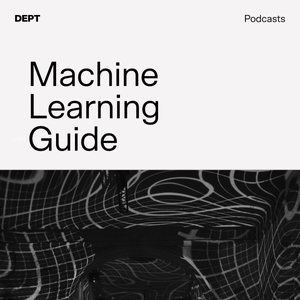
Welfare in the Exponential Age
03/11/20 • 34 min
Existing social institutions are not adequate to meet the challenges of the exponential age. Social entrepreneur and author, Hilary Cottam, proposes a radical overhaul of the welfare system. In discussion with Azeem Azhar, she also argues that we must reject the old economic model for humanity, Homo econonomicus (guided by ration to maximize economic gains), and embrace Sapiens integra, a new theoretical human with stronger connections to nature and other humans.
In this conversation, they discuss:
- The New Industrialists and their role in the social revolution.
- How a switch from the mindset of efficiency to the mindset of care can transform our institutions.
- The role of new technologies in this transformation.
Further reading:
- “Radical Help” (Hilary Cottam, 2019)
- “Revolution 5.0: A Social Manifesto” (Hilary Cottam, 2019)
- “The Future of Public Service and Governance” (Exponential View podcast, 2018)
Existing social institutions are not adequate to meet the challenges of the exponential age. Social entrepreneur and author, Hilary Cottam, proposes a radical overhaul of the welfare system. In discussion with Azeem Azhar, she also argues that we must reject the old economic model for humanity, Homo econonomicus (guided by ration to maximize economic gains), and embrace Sapiens integra, a new theoretical human with stronger connections to nature and other humans.
In this conversation, they discuss:
- The New Industrialists and their role in the social revolution.
- How a switch from the mindset of efficiency to the mindset of care can transform our institutions.
- The role of new technologies in this transformation.
Further reading:
- “Radical Help” (Hilary Cottam, 2019)
- “Revolution 5.0: A Social Manifesto” (Hilary Cottam, 2019)
- “The Future of Public Service and Governance” (Exponential View podcast, 2018)
Previous Episode

How Humans Judge Machines
“People judge humans by their intentions, and machines by the outcome,” says physicist and author Cesar Hidalgo. He is one of the creators of the field of Complexity Economics. Hidalgo joins Azeem Azhar to explain how he applies this complexity approach to understanding how we judge decision-making in machines.
They also discuss:
- What the Shenzhen electronics market reveals about the economics of megacities.
- How we unconsciously ascribe morality to machines, and what this implies for innovation.
- Algorithmic aversion and how it will influence the implementation of AI.
Further reading:
- “A Bold Idea to Replace Politicians” (TED, 2018)
- “The Autonomous Economy” (Exponential View podcast, 2019)
Next Episode

The Redecentralized Web
Data monopolies and abuses of privacy are only some of the flaws of Web 2.0. Muneeb Ali, co-founder and CEO of Blockstack, tells Azeem Azhar how the emerging Web 3.0 solves these challenges and gives users more control over their digital existence.
In this conversation, they discuss:
- Why property rights and privacy are intimately linked.
- The emergence of a novel app ecosystem on the new internet.
- The role of the new crypto economy in the transformation of the internet.
Further reading:
- “Tech Thinks It Has a Fix for the Problem it Created: Blockchain” (The New York Times, 2018)
- “The Emergence of Web 3.0” (Hackernoon, 2019)
- “Can’t Be Evil vs. Don’t Be Evil” (Exponential View newsletter, 2020)
- “Beyond Digital Gold” (Exponential View newsletter, 2020)
If you like this episode you’ll love
Episode Comments
Generate a badge
Get a badge for your website that links back to this episode
<a href="https://goodpods.com/podcasts/azeem-azhars-exponential-view-37371/welfare-in-the-exponential-age-1520475"> <img src="https://storage.googleapis.com/goodpods-images-bucket/badges/generic-badge-1.svg" alt="listen to welfare in the exponential age on goodpods" style="width: 225px" /> </a>
Copy




